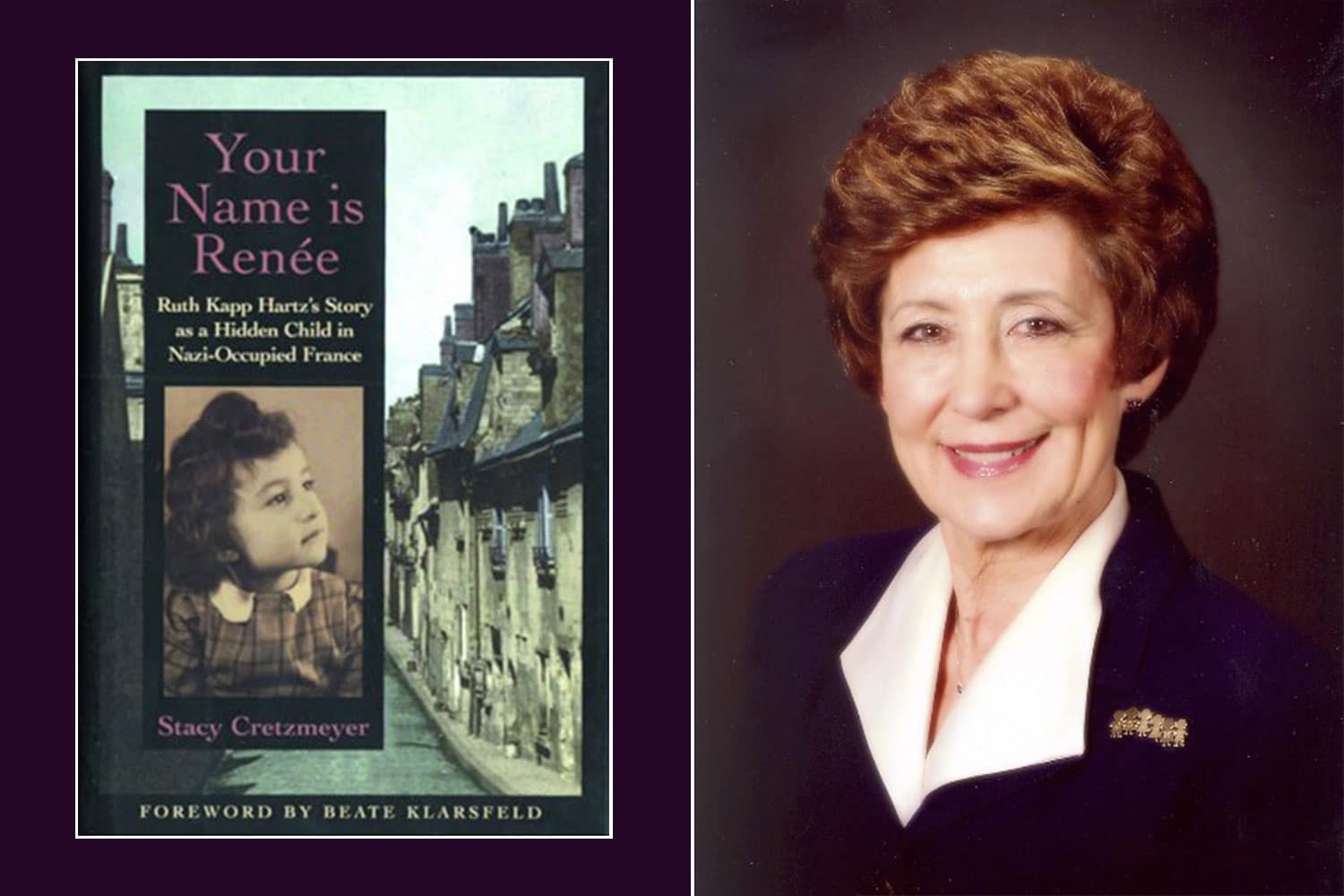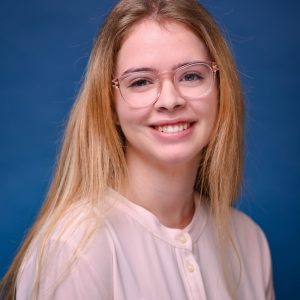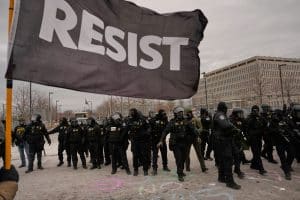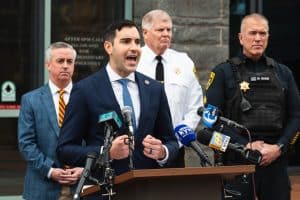Ruth Kapp Hartz shared the importance of continuing to educate future generations about the Holocaust at Bucks County Community College on Thursday afternoon. She shared her story about being a “hidden child” of the Holocaust at the free event event presented by BCCC’s School of Social and Behavioral Science and the Holocaust and Genocide Studies certificate program, in collaboration with the Holocaust Awareness Museum and Education Center.
Hartz chronicled her life before the war, during her time in hiding, and life after. She shared old photos of her family members, as a young girl in the convent, the trap door she hid in, and the return trips to reconnect with her rescuers and their descendants. Hartz’s message centers around the experiences of the “hidden” children and the people who aided them.
When she was a four-year-old, Hartz and her family refused to wear the gold stars and went into hiding aided by two families, the Fédous and Valats. The family separated and Hartz was sent to a small Catholic convent in southern France for six months where she was an orphan. Hartz was given the name Renee, meaning “reborn” in French, by her cousin Jeannette to hide her Jewish identity. The Mother Superior Rosalie was the sole nun who knew Hartz and the other hidden Jewish children’s identities. She hid the children in a trap door when the Vichy French Police and Gestapo were informed of the nuns hiding Jewish children.
READ: Faith Leaders Condemn a Pennsylvania Halloween Parade Float With an Auschwitz Sign
“She said ‘Me, hide Jewish children? Why would I do such a dangerous thing?,” said Hartz recalling the conversation then hearing the authorities walk away. The children stayed hidden in the trap overnight.
Hartz and her parents were reunited. Her grandparents and cousin survived, but many of her relatives did not. During the holocaust, Nazis murdered six million Jewish people including a large majority of the Jewish children in Europe. Hartz is among the 6% of European Jewish children to survive.
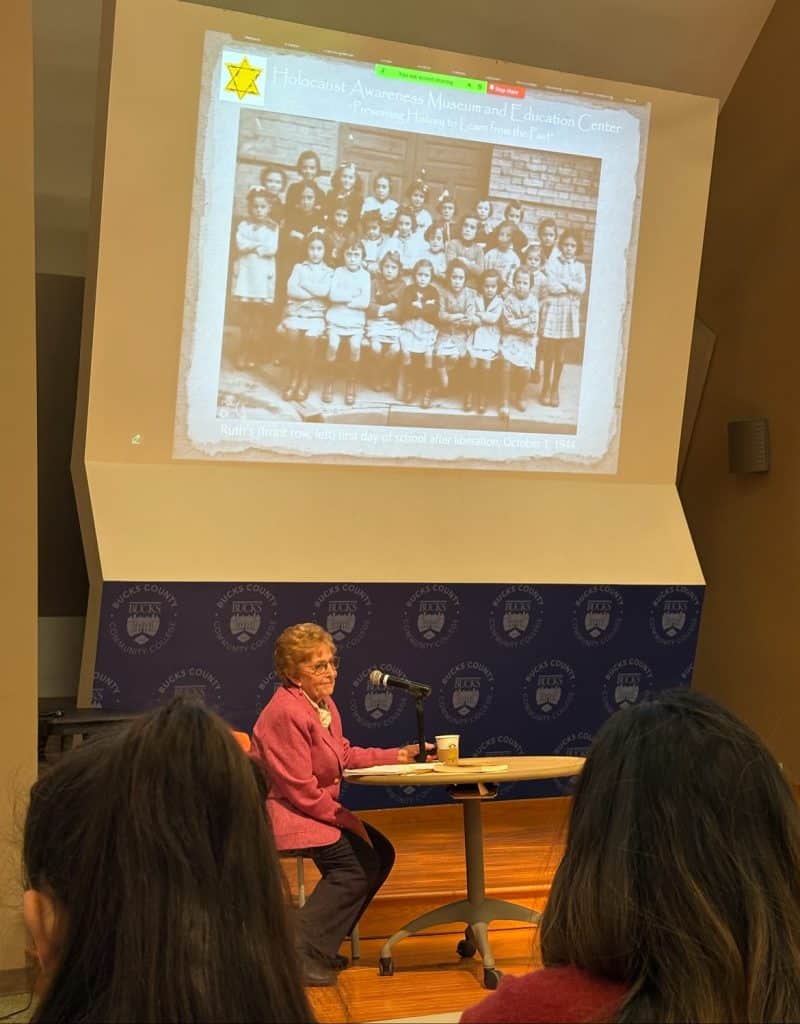
“So in order to survive, you had to have luck and people who helped you along the way,” Hartz said.
For many years, Hartz did not speak about her experience because she did not consider herself a survivor as a “hidden child”. Now, Hartz has been speaking for 30 years and has passed on stories to her children who speak publicly, as well.
Hartz documented her story in “Your Name is Renée: Ruth Kapp Hartz’s Story as a Hidden Child in Nazi-Occupied France” written by Stacy Cretzmeyer, a former student of Hartz at Springside Chestnut Hill Academy in Philadelphia. Cretzmeyer approached Hartz for help with writing about “hidden children”, not knowing her former teacher was one. The book was published in 1994 and later translated into French.
In 2017, Hartz was approached by composers David and Jenny Heitler-Klevens about creating “Hidden: The Musical” based on her story. The married duo performed songs, “Never Again” and “I’m Not a Hero”, from the musical after Hartz’s presentation.
“I wish I could say it’s ‘never again’,” said Hartz. “Unfortunately, it’s ‘ever again.’”
Hartz concluded her presentation noting this year marks the 80th anniversary of the liberation of Auschwitz, yet there is continued “alarming cries of Holocaust denial, anti-semitism, genocides around the world, and unchecked hatred.” She recalled U.S. Representative Brendan Boyle (PA-13) saying “Never Again” needs to be reinforced with action.
“We can start by ensuring that future generations will never forget about the dangers of extremism and discrimination that defined the Holocaust,” said Hartz.
“I wish I could say it’s ‘never again.’ Unfortunately, it’s ‘ever again.’”
Hartz, at 88 years old, continues to speak to students across the country about her story, telling students “you are the last generation to hear our stories.”
Pennsylvania is one of the many states that don’t require teaching the Holocaust. Hartz said many students graduate unexposed to the Holocaust, often not knowing what the word means.
READ: Newly Discovered Photos of Nazi Mass Deportations of Jews Give Previously Faceless Victims a Voice
“The Holocaust teaches universal lessons, including World History extremism, the fragility of democracy, human capacity for immorality, the role of perpetrators and bartenders, and the importance of empathy,” said Hartz.
Hartz says she tells students show compassion, strength, and hope while remembering the Holocaust.
“I would like to leave you with a quote from the most famous hidden child of the Holocaust, Anne Frank, who sadly did not survive,” said Hartz. “She said, ‘When there is hope, there is life, it fills us with fresh courage and makes us strong again.’”
